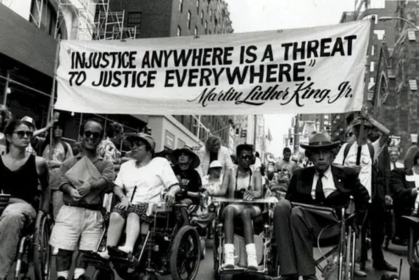
Remembering Dr. Martin Luther King, Jr.
Today is a day to celebrate the legacy of a leader who worked tirelessly for greater equality and civil rights for all people. Through the Civil Rights Act of 1964 and the Voting Rights Act of 1965, King was instrumental in achieving voting rights for African-Americans and ending segregation. He showed what a determined minority could accomplish through nonviolent resistance and civil disobedience.
Dr. King's life was cut short, and so it is impossible to know what he might have achieved had he not been assassinated. At the time of his death, King was expanding his civil rights advocacy to include anti-poverty efforts, so we know he was opposed to injustice and inequity of all forms. He was quite clear in his message that “it is not possible to be in favor of justice for some people and not be in favor of justice for all people.”
Even in death, Dr. King lives on. His nonviolent resistance and civil disobedience served as the inspiration for the disability rights movement thirty years later. In the fight leading up to the passage of the Americans with Disabilities Act, the disability rights movement emulated King’s non-violent approach to social justice with civil disobedience, including sit-ins, boycotts, blocking traffic, and protest marches. Dr. King and his supporters proved that these approaches could lead to widespread change, thus giving the disability rights movement a map to follow.
Dr. King's legacy is not only that he opened peoples' eyes to the many forms of injustice in this country, but also that it was possible to force action and new legislation through nonviolence. It is hard to imagine where the disability rights movement would be today were it not for Dr. King.


